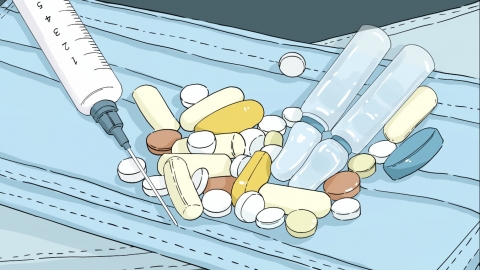Can nerve block alleviate trigeminal neuralgia?
Trigeminal neuralgia refers to painful twitching. Generally, if only mild painful twitching occurs, neural blockade can relieve trigeminal neuralgia; however, if the painful twitching is caused by a severe underlying disease, neural blockade may fail to alleviate the pain. It is recommended to visit a hospital to identify the underlying cause and follow medical advice for appropriate treatment. Detailed analysis is as follows:

Neural blockade therapy involves injecting medication into specific nerve regions to temporarily block nerve conduction, thereby relieving pain. For patients whose painful twitching is not particularly severe, or whose pain attacks frequently but lasts only briefly, neural blockade can serve as an effective treatment option. By injecting anesthetic agents or using laser therapy, the pain signal transmission pathways can be blocked, allowing patients to experience significant pain relief or even pain-free periods.
Painful twitching caused by conditions such as multiple sclerosis or tumor compression may respond poorly to neural blockade, with only temporary pain relief or even no effect at all. Moreover, long-term or frequent neural blockade may lead to side effects such as infection, nerve damage, or drug dependence, which could negatively affect the patient's overall health.
During the treatment process, patients should maintain healthy lifestyle habits, avoid excessive fatigue, and keep emotional stability, all of which can help improve treatment outcomes.








